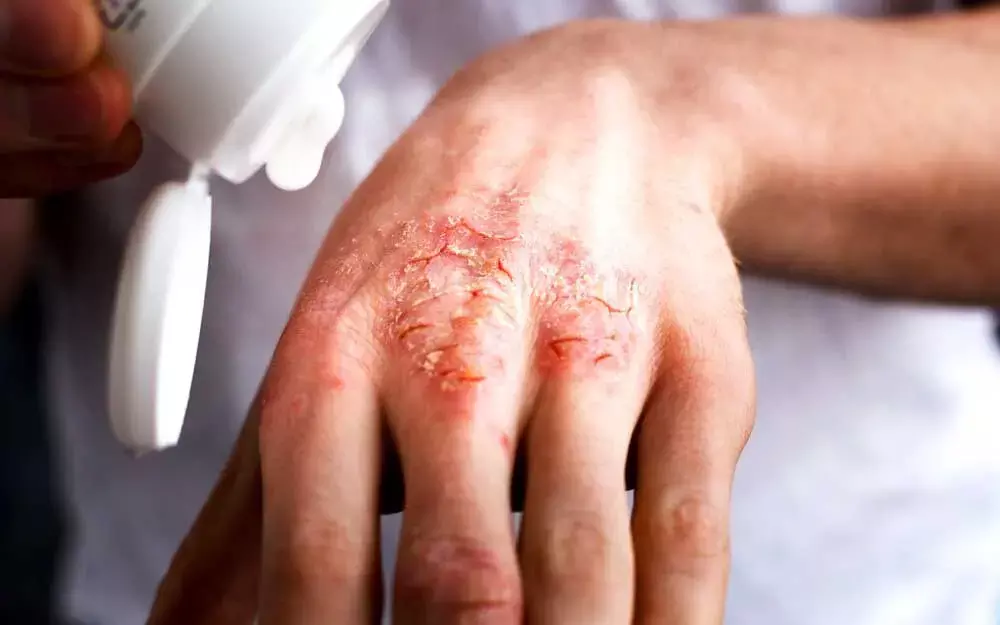- Home
- Medical news & Guidelines
- Anesthesiology
- Cardiology and CTVS
- Critical Care
- Dentistry
- Dermatology
- Diabetes and Endocrinology
- ENT
- Gastroenterology
- Medicine
- Nephrology
- Neurology
- Obstretics-Gynaecology
- Oncology
- Ophthalmology
- Orthopaedics
- Pediatrics-Neonatology
- Psychiatry
- Pulmonology
- Radiology
- Surgery
- Urology
- Laboratory Medicine
- Diet
- Nursing
- Paramedical
- Physiotherapy
- Health news
- Fact Check
- Bone Health Fact Check
- Brain Health Fact Check
- Cancer Related Fact Check
- Child Care Fact Check
- Dental and oral health fact check
- Diabetes and metabolic health fact check
- Diet and Nutrition Fact Check
- Eye and ENT Care Fact Check
- Fitness fact check
- Gut health fact check
- Heart health fact check
- Kidney health fact check
- Medical education fact check
- Men's health fact check
- Respiratory fact check
- Skin and hair care fact check
- Vaccine and Immunization fact check
- Women's health fact check
- AYUSH
- State News
- Andaman and Nicobar Islands
- Andhra Pradesh
- Arunachal Pradesh
- Assam
- Bihar
- Chandigarh
- Chattisgarh
- Dadra and Nagar Haveli
- Daman and Diu
- Delhi
- Goa
- Gujarat
- Haryana
- Himachal Pradesh
- Jammu & Kashmir
- Jharkhand
- Karnataka
- Kerala
- Ladakh
- Lakshadweep
- Madhya Pradesh
- Maharashtra
- Manipur
- Meghalaya
- Mizoram
- Nagaland
- Odisha
- Puducherry
- Punjab
- Rajasthan
- Sikkim
- Tamil Nadu
- Telangana
- Tripura
- Uttar Pradesh
- Uttrakhand
- West Bengal
- Medical Education
- Industry
Abrocitinib shows promise in managing severe atopic dermatitis;NEJM

A recent study has suggested that abrocitinib, at a dose of either 200 mg or 100 mg ,once daily, resulted in significantly greater reductions in signs and symptoms of moderate-to-severe atopic dermatitis than placebo at weeks 12 and 16. The research team further confirmed that the 200-mg dose, but not the 100-mg dose, of abrocitinib was superior to dupilumab with respect to itch response at week 2.The interesting findings have been put forth in The New England Journal of Medicine.
The oral Janus kinase 1 (JAK1) inhibitor abrocitinib, which reduces interleukin-4 and interleukin-13 signaling, is, till date, being investigated for the treatment of atopic dermatitis. Data from trials comparing JAK1 inhibitors with monoclonal antibodies, such as dupilumab, that block interleukin-4 receptors are limited.
In this recent phase 3, double-blind trial, researchers randomly assigned patients with atopic dermatitis that was unresponsive to topical agents or that warranted systemic therapy (in a 2:2:2:1 ratio) to receive 200 mg or 100 mg of abrocitinib orally once daily, 300 mg of dupilumab subcutaneously every other week (after a loading dose of 600 mg), or placebo; all the patients received topical therapy. The primary end points were an Investigator's Global Assessment (IGA) response (defined as a score of 0 [clear] or 1 [almost clear] on the IGA [scores range from 0 to 4], with an improvement of ≥2 points from baseline) and an Eczema Area and Severity Index–75 (EASI-75) response (defined as ≥75% improvement from baseline in the score on the EASI [scores range from 0 to 72]) at week 12. The key secondary end points were itch response (defined as an improvement of ≥4 points in the score on the Peak Pruritus Numerical Rating Scale [scores range from 0 to 10]) at week 2 and IGA and EASI-75 responses at week 16.
Key points highlighted on data analysis were-
- A total of 838 patients underwent randomization; 226 patients were assigned to the 200-mg abrocitinib group, 238 to the 100-mg abrocitinib group, 243 to the dupilumab group, and 131 to the placebo group.
- An IGA response at week 12 was observed in 48.4% of patients in the 200-mg abrocitinib group, 36.6% in the 100-mg abrocitinib group, 36.5% in the dupilumab group, and 14.0% in the placebo group (P<0.001 for both abrocitinib doses vs. placebo); an EASI-75 response at week 12 was observed in 70.3%, 58.7%, 58.1%, and 27.1%, respectively (P<0.001 for both abrocitinib doses vs. placebo).
- The 200-mg dose, but not the 100-mg dose, of abrocitinib was superior to dupilumab with respect to itch response at week 2. Neither abrocitinib dose differed significantly from dupilumab with respect to most other key secondary end-point comparisons at week 16.
- Nausea occurred in 11.1% of the patients in the 200-mg abrocitinib group and 4.2% of those in the 100-mg abrocitinib group, and acne occurred in 6.6% and 2.9%, respectively.
For the full article follow the link: DOI: 10.1056/NEJMoa2019380
Primary source: The New England Journal of Medicine
Dr Satabdi Saha (BDS, MDS) is a practicing pediatric dentist with a keen interest in new medical researches and updates. She has completed her BDS from North Bengal Dental College ,Darjeeling. Then she went on to secure an ALL INDIA NEET PG rank and completed her MDS from the first dental college in the country – Dr R. Ahmed Dental College and Hospital. She is currently attached to The Marwari Relief Society Hospital as a consultant along with private practice of 2 years. She has published scientific papers in national and international journals. Her strong passion of sharing knowledge with the medical fraternity has motivated her to be a part of Medical Dialogues.
Dr Kamal Kant Kohli-MBBS, DTCD- a chest specialist with more than 30 years of practice and a flair for writing clinical articles, Dr Kamal Kant Kohli joined Medical Dialogues as a Chief Editor of Medical News. Besides writing articles, as an editor, he proofreads and verifies all the medical content published on Medical Dialogues including those coming from journals, studies,medical conferences,guidelines etc. Email: drkohli@medicaldialogues.in. Contact no. 011-43720751


